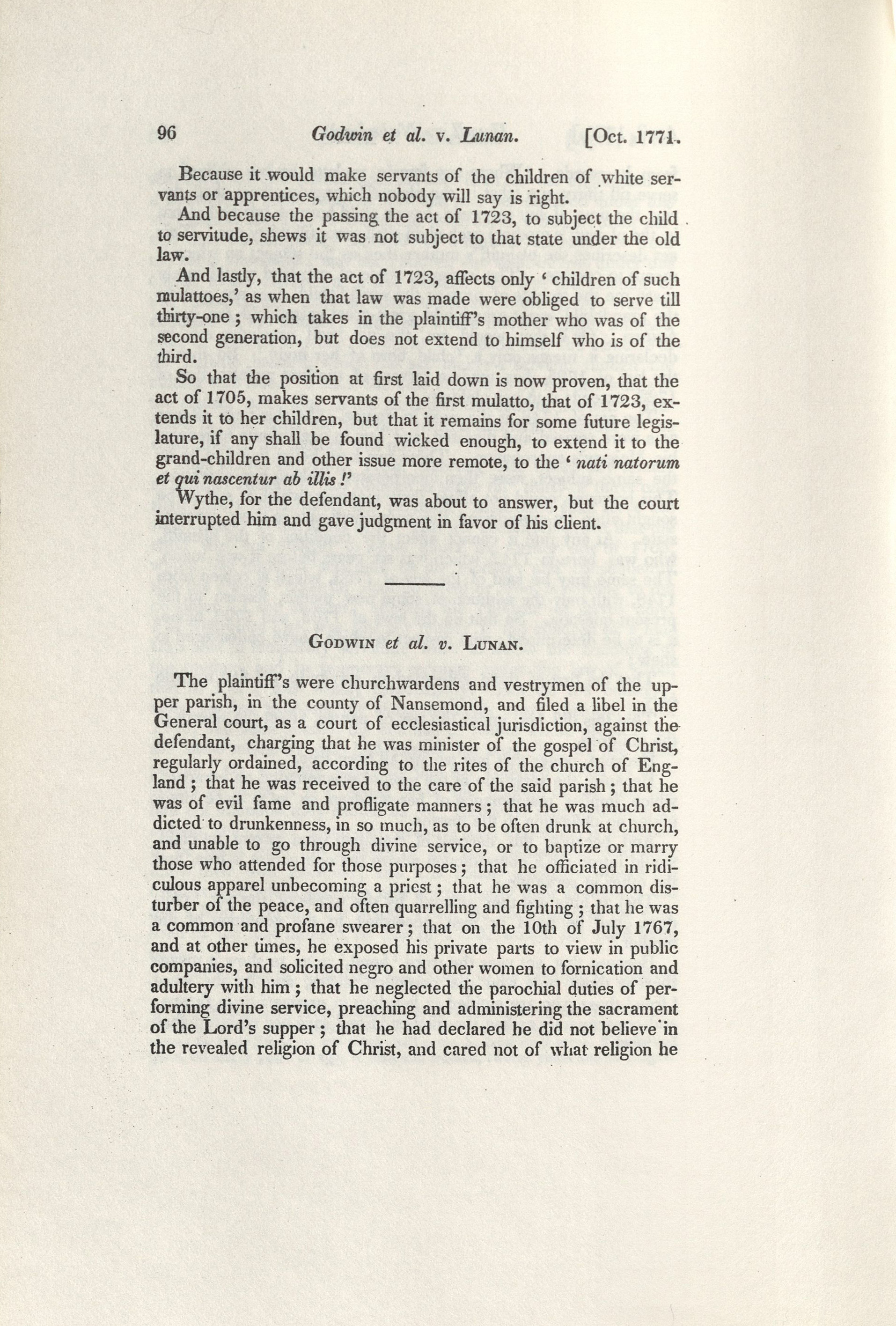Godwin v. Lunan

Goodwin v. Lunan, Jefferson 96 (1771)[1] was a case in libel argued before the General Court in Virginia in October 1771. Jurisdiction was the principal issue in this case, as it was uncertain that the General Court had the ecclesiastical jurisdiction necessary to hear the case. George Wythe and Thomas Jefferson, for the libellants, argued that the court had jurisdiction.
Background
Churchwardens and vestrymen of the upper parish in Nansemond County filed this libel suit against Patrick Lunan and argued that the General Court had ecclesiastical jurisdiction over the matter. Plaintiffs alleged that Lunan, a minister of the Church of England had engaged in inappropriate conduct. This conduct included drinking, swearing, fighting, neglecting his duties, officiating in “ridiculous apparel unbecoming a priest,” soliciting women to adultery with him, declaring that he did not believe in Christ, and exposing himself on several occasions. George Wythe and Thomas Jefferson, for the libellants, argued that the General Court had jurisdiction in the matter. Wythe and Jefferson, true to their scholarly roots, argued an impressively well researched case including numerous sources that covered nearly the entirety of British history and some Roman law. These works included Blackstone, Coke, Yelverton, Justinian, Selden, Salkeld, Littleton, Holt, Hume’s History of England, several of the year books, the Modern Reports, and many others. Wythe and Jefferson determine that there are three classes of churches and that the churches of the Virginia government are donatives. This was because there were of lay foundation, not subject to the presentation of a bishop, and lie in the gift of the King. Wythe and Jefferson noted that the King retained the powers of investiture and visitation, endowing enforcement of this power on the Chancellor. Thus, the General Court, having the powers of a Chancellor, has jurisdiction over the matter.
Attorney General John Randolph, for defendant, argued that the court did not have jurisdiction over the matter because the legislature intended only to give such powers in testamentary matters. Randolph argued that the scope of ecclesiastical jurisdiction was very limited. Jefferson notes that his report about the arguments of opposing counsel are noticeably sparse, because he was “prevented from taking them down minutely by the necessity of considering in the instant, how they might be answered.”
The Court's Decision
The court held in favor of the libellants, finding that it had jurisdiction to hear the case and, with sufficient cause, could censure or deprive the defendant.
See also
References
- ↑ Thomas Jefferson, Reports of Cases Determined in the General Court of Virginia, from 1730 to 1740 and from 1768 to 1772] ed. Thomas Jefferson Randolph. (Charlottesville: F Carr and Co., 1829; Buffalo, N.Y. : W.S. Hein, 1981): 96.